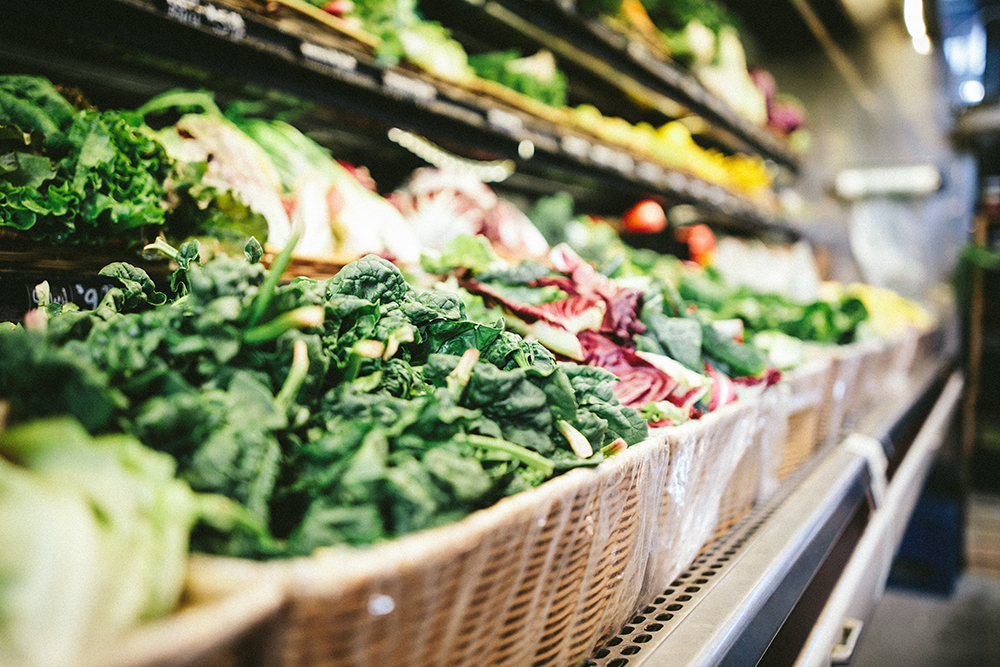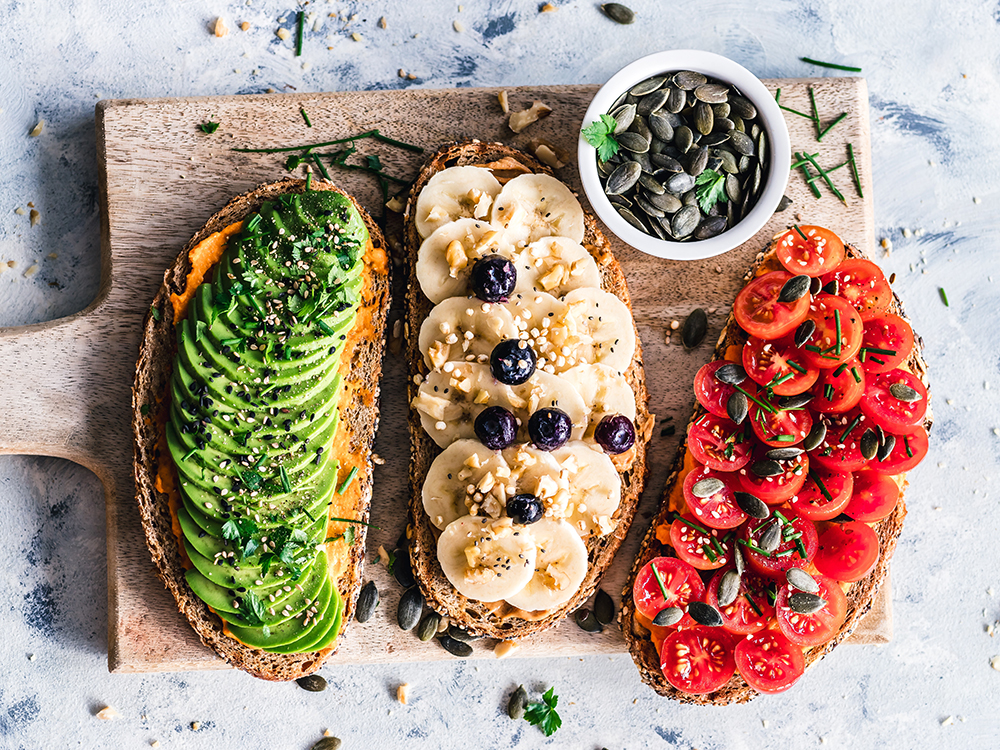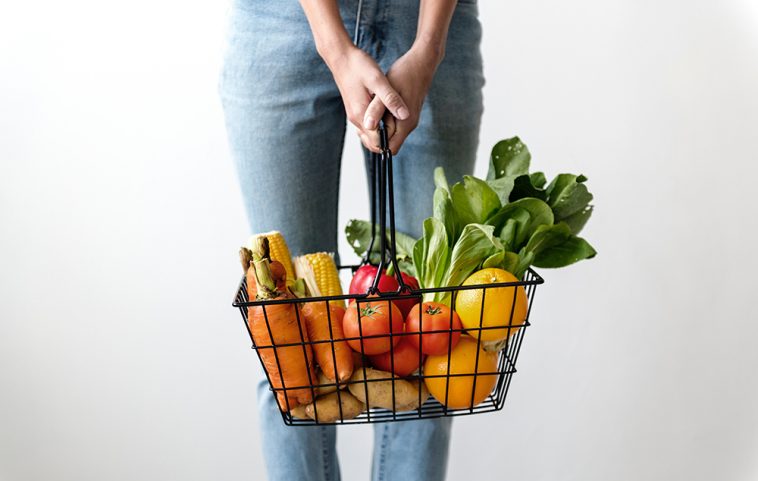The start of a new year brings new resolutions, goals and aspirations. Some will learn a new language; others may pick up an instrument. And many, will make the change to a plant-based life.
Over the past decade, a growing trend in the food sector has been in plant-based products and menus. According to a recent study, in Canada there are now over 3 million vegans and vegetarians living in the country. That is close to 10% of our true north population.
Four years ago, I made the switch to a plant-based lifestyle after viewing a disturbing clip of slaughterhouse footage (in a university lecture believe it or not). I started off slow, cutting just meat and fish from my diet. Then just before Christmas, I eliminated dairy and eggs, completely crossing over to the green side.

Why Go Plant-Based?
Every vegan or vegetarian I have crossed paths with, has a different story to tell. Some are in it for the health benefits, others can’t stomach the cruelty, and a few just don’t seem to like the taste of meat.
For me, it’s a blend of the big three: animals, environment and health.
Animals
When I was small and skipping rope in the front yard, I wanted to be a veterinarian. For years it was my reply to every adults’ inevitable inquiry, “what do you want to be when you grow up?” And it was true, I loved animals – and still do. The zoo was my home away from home, and going to a friends’ house to play with their pet puppy or cat was like going to Disney World. Even the squirrels and rabbits that bounced into our yard were precious visitors in my mind. As I grew, my choice in career transformed, but my love of animals remained.
Peter Dinklage, a star in the hit HBO show Game of Thrones, once said “I love animals. All animals. I wouldn’t hurt a cat or a dog – or a chicken, or a cow. And I wouldn’t ask someone else to hurt them for me. That’s why I’m a vegetarian.”
A simple sentiment, perfectly put. I could never look a living creature in the eye and kill it for my meal, so I couldn’t justify the purchase of murder by someone else’s hands. Admittedly, there have been a few rare situations over the past four years, I have been required to taste meat. After months and years of vegetables only, the taste changes completely. It becomes a foreign thing, and leaves my stomach heavy with guilt.
But there are many varieties of plant-based diets, and everyone follows the rules that work for them.

Environment
It may seem like a small, insignificant thing, but reducing our intake of meat and poultry can dramatically diminish the carbon footprint we leave behind. Livestock take up a lot of space. In 2005, National Geographic stated 40% of the land on our planet was dedicated to agricultural farming. Hard to swallow, isn’t it? Almost half of the Earth, used for farming.
That means forests, grasslands, and other natural habitats have been wiped away to make room for farm animals and factory farms; all of which create astronomical greenhouse gas emissions and require ample amounts of water and electricity. That being said, if everyone stopped eating meat tomorrow the economy would go crazy and millions of people would be out of work.
Health
There are many traditions closely correlated with meat: turkey on Thanksgiving; ham for Christmas, and many more that vary on culture and customs. But there are also many reasons our bodies may want us to eat less meat.
Your mind may jump straight to weight loss, and it’s true, consuming a balanced diet of natural, non processed, non refined foods has been proven to aid in losing weight and keeping it off long term. But studies have also found that eating a plant based diet can help lower our risk of heart disease. A higher intake of antioxidants from plants may also help to prevent our chances of Alzheimer’s disease, and just might reduce the risk of certain types of cancer. Plant based diets have also been proven to drastically cut the risk of type 2 diabetes in half. This is because consuming more veggies can help to control our blood sugar, lower cholesterol and improve cognitive functions. Reports even suggest that plant based diets can improve recovery times, lower stress levels and boost our mood. Vegetables, fruits, nuts and beans can do wonders for our body, inside and out. Going green also has external effects. Thick luscious hair, strong nails, and clear glowing skin are all attributes of a whole-foods plant based diet.

Types of Plant-Based Diets
If you aren’t entirely familiar with the outline of these dietary labels, they can sound a bit confusing. Vegetarian, pescatarian, flexitarian, lacto-ovo vegetarian… the list rolls on. Today, people have coined titles for just about every type of veggie diet. Some consume eggs, while others consider it a taboo. Cheese may be on the menu, or cashews may take its place. To help clear the confusion, below you will find lists of plant-based diets and the foods consumed for each.
Raw Vegan: A level above vegan, people that follow this diet consume natural, raw, whole foods (mainly fresh vegetables, fruit, beans and nuts). Nothing is allowed to be cooked over 115˚F
Vegan: No animal products whatsoever. No meat, seafood or poultry. No eggs, no dairy, no honey and nothing that comes from, or was made by an animal or insect.
Vegetarian: A vegetarian will not eat meat, seafood or poultry. When it comes to eggs and dairy, the choice to eat or not to eat, creates two subcategories of vegetarians;
Lacto-ovo vegetarian: No meat, seafood, or poultry. But they will eat eggs and dairy.
Lacto vegetarian: No meat, seafood or poultry. No eggs, but they will eat dairy.
Pescatarian: No meat and poultry. They will eat seafood, dairy and eggs.
Flexitarian: Mainly vegetarian, but if it is easier for social situations, or for personal desire, they will eat meat.
Paleotarian: Technically, people that follow this diet still consume meat and fish. However, they eat food in its purist form. Fresh fruit, vegetables, beans, nuts and meat. Nothing refined or preserved. It is the ‘hunter/gather/’ diet. Refined sugars and starches are low in this lifestyle.
Read More
By KANDL Light



